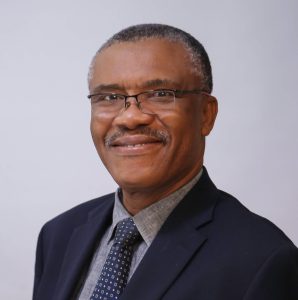Overview
Design Thinking is an approach used for practical and creative problem-solving. It has evolved from a range of different fields — visual design, software design, product development, architecture, engineering and business.
Design Thinking can be applied to any field and also, to products and services. Design Thinking is extremely user-centric. It focuses on humans first by seeking to understand people’s needs and come up with effective solutions to meet those needs. It is called a solution-based approach to problem-solving or human-centric design. There are four principles of Design Thinking namely:
The human rule: No matter what the context, all design activity is social in nature, and any social innovation will bring us back to the “human-centric point of view”.
The ambiguity rule: Ambiguity is inevitable, and it cannot be removed or oversimplified. Experimenting at the limits of your knowledge and ability is crucial in being able to see things differently.
The redesign rule: All design is redesign. While technology and social circumstances may change and evolve, basic human needs remain unchanged. We essentially only redesign the means of fulfilling these needs or reaching desired outcomes.
The tangibility rule: Making ideas tangible in the form of prototypes enables designers to communicate them more effectively.
Learning Objectives and Benefits
After the programme, you will be able to:
- Design and re-design your services and product delivery capabilities
- Use design thinking skills to solve multiple problems at your firm
- Gain confidence in problem-solving techniques
Who should attend
If you are in the following function, this programme is for you
- Sales and marketing personnel involved in creating solutions for their customers.
- Advertising practitioners with the desire to create effective and unique solutions for their clients.
- Product and service development personnel of manufacturing and services firms.
- Business development managers and owners
Structure and Curriculum
- Introduction to Design Thinking
- Building Empathy for the User of products or services
- Defining the Problem
- Ideation Part 1: Generate Ideas & Potential Solutions
- Ideation Part 2: User Journey Mapping
- Prototype and Test Ideas
Admission process
1. Click on the Apply Now tab above
2. Select the number of participants to enroll on the programme
3. Fill in your details to complete your application
4. Request for an invoice or make an instant payment via our secured payment gateway
5. Upon confirmation of payment, a programme manager will get in touch with you at least three days before the programme commences.
Faculty

Dr. Ojadi has consulted widely for many companies (including banks, food and beverage and distribution and retail companies, and urban transport development) in the areas of procurement
improvement and logistics and supply chain optimisation. He is a member of the Editorial Board of the South African-based Journal of Transport and Supply Chain Management.
Dr Frank Ojadi obtained a bachelor’s degree in Engineering Physics from the University of Ife in 1981 (now Obafemi Awolowo University), an MBA from the Maastricht School of Management, Netherlands and PhD in Transport Economics from the Department of Transport and Supply Chain Management of the University of Johannesburg, South Africa.

Before his faculty appointment, Obinna Muogboh served as the Chief Executive Officer of Jess-NP Limited, a Nigerian-based manufacturing firm. He brings back to the academic world his wealth of experience in managing business in a highly competitive and challenging business environment.
Dr. Muogboh has consulted and researched various organisations in Nigeria and abroad, including multilateral agencies such as UNIDO. He is a member of the Institute for Operations Research and the Management Sciences (INFORMS). Dr Muogboh also worked at INSEAD, France as the 2009 INSEAD African Faculty fellow.
He received his M.Sc. and Ph.D. in Industrial Engineering from the University of Pittsburgh, USA. He received his B.Eng. in Electronic Engineering from the University of Nigeria, Nsukka.
